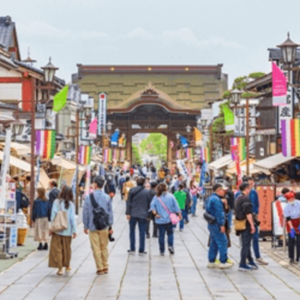
课程介绍
High school students (Grades 9-12), college students, or adult learners interested in global studies, economics, or cultural exchange.
Time Allocation:
45minutes (based on discussion depth)
Learning Objectives:
By the end of this lesson, participants will be able to:
- 1. Identify characteristics of Japan's recent tourism boom.
- 2. Analyze the positive economic and cultural impacts of increased tourism on Japan.
- 3. Evaluate and discuss the negative social and environmental consequences of overtourism in Japan
You are going to repeat the word and sentence after me.
reliance - She placed great reliance on her mentor's advice
revitalize - The goverment plans to revitalize the rural economy
prosperity - Education is the key to long-term prosperity
stimulate - Lower interest rates can stimulate economic growth.
misleading - The advertisement was considered misleading by many consumers.
Teacher will read the article first - student listens
Student to read the article below :- Any words mispronounced will be noted and revised at the end of reading
Is Japan's Tourism Boom Really Helping Its People?
Japan's economy has shown a heavy reliance on foreign tourism in recent years. The government views this as positive, as spending by tourists adds to the nation's wealth. However, some economists argue that this approach is detrimental to the Japanese people, even if it improves numbers like GDP.
The official position is that inbound consumption is becoming a larger part of Japan's GDP. Inbound consumption refers to spending by foreign tourists within the country. The current administration continues to promote tourism to revitalize local areas. This policy aims to bring new life to regions that need economic help.
Yet, one economist questions whether selling the labor of Japanese people cheaply to foreigners can lead to national prosperity. Another doubt that a strategy centered only on tourism can effectively stimulate the economy.
Moreover, the apparent economic growth from tourism may be misleading. Statistics show higher productivity, but this often comes from raised prices for the same services. For example, sushi restaurants in central Tokyo have seen prices triple or quadruple in about 10 years. This explains why the benefits might not be as real as they seem, thus challenging the idea that tourism truly enriches the nation.
Comment on students reading of the passage and give feedback
Ask questions below and get response from student
1. What concern do some economists have about Japan’s reliance on tourism?
2. What does "inbound consumption" mean in the article?
3. Why might the economic growth from tourism be misleading?
Discussion
Do you think Japan's strong reliance on tourism is a good long-term strategy? Why or why not?
Would you prefer to live in a town that focuses on (A) tourism or (B) manufacturing? Share your thought.
Should the government continue promoting inbound tourism to help local areas? Explain the detail.
Do you agree that cheap labor for tourists cannot lead to national prosperity? Why or why not?
Do you think raising service prices to attract tourists is harmful to local residents? Share your thought.
If you were a policymaker, would you (A) keep focusing on tourism or (B) shift to technology investment? Explain the detail.
Review of lesson
1. Three words and phrases in this lesson
2. Three difficult to pronounce words




Cafetalk 的取消政策
课程预约确定前
- 随时可以取消。
课程预约确定后
- 课程时间前 24 小时以上→ 随时可以取消。
- 课程时间前 24 小时內 → 讲师将可能收取消费。
-
缺席→ 讲师将可能收取消费。
(请与讲师确认详情。)



